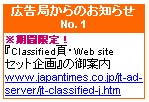
Sustainable development program tall order By ERIC JOHNSTON Staff writer KYOTO -- Next year marks the start of the U.N. mandated Decade of Education for Sustainable Development -- an ambitious program pushed by UNESCO to promote international resource development that is socially desirable, economically viable, culturally appropriate and ecologically sustainable. However, the broad goals and lack of international consensus on how best to achieve them have many questioning if the program will be effective. "Getting the word out and educating people on the goals and purposes of sustainable development is our greatest challenge. In many parts of Asia, where computer technologies are unknown and where indigenous peoples live, there are also numerous logistical, linguistic and cultural barriers to such education," said Derek Elias, an official with UNESCO's Bangkok office. Elias, who was attending the Sept. 25-26 Peace as a Global Language conference at the Ritsumeikan International Peace Museum in Kyoto, said education efforts will focus on a number of themes, including development of sustainable agriculture and biodiversity, and issues over gender, health, poverty and water. In March, UNESCO's Asia and Pacific regional bureau for education will meet in Seoul to present a report on how to promote sustainable development in Asia. "Currently, there is a sample of about 20 Asian countries that we are using as a base for discussions related to the region. Japan is expected to play the leading role in promoting and supporting such educational programs by providing funding and technological assistance," Elias said. While UNESCO will be the lead agency in promoting the decade's goals and will play a major role in implementing them, Elias also stressed that a broad range of partners, from governments to the private sector, will also be involved. "The sheer diversity of the issues involved means that . . . many groups and organizations will be needed to make the decade a success," he said. It's that sheer diversity that has many critics charging that the goals of the decade are unrealistic. The Seoul meeting is only six months away and concrete proposals are expected to be presented at that time. "There are still a lot of questions remaining about the implementation of educational policy at the national government level, especially about how governments with diverse ethnic, linguistic and religious groups can meet the goals of the decade. Time is running short, and I hope that, by next March, we have some regional consensus on these questions," Elias said. The Japan Times: Oct. 5, 2004
|
| |||||||||||||||||||||||||||||||||||||||||



















